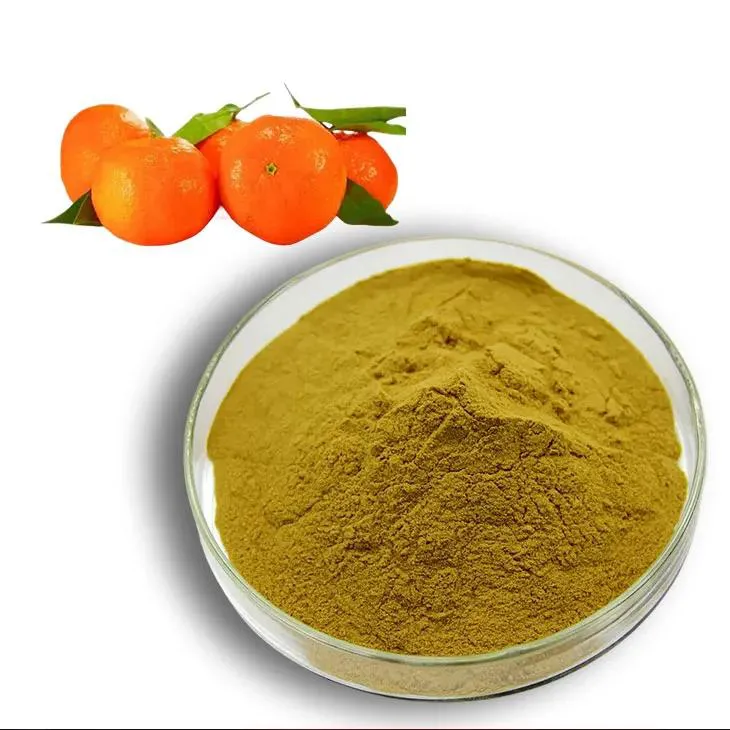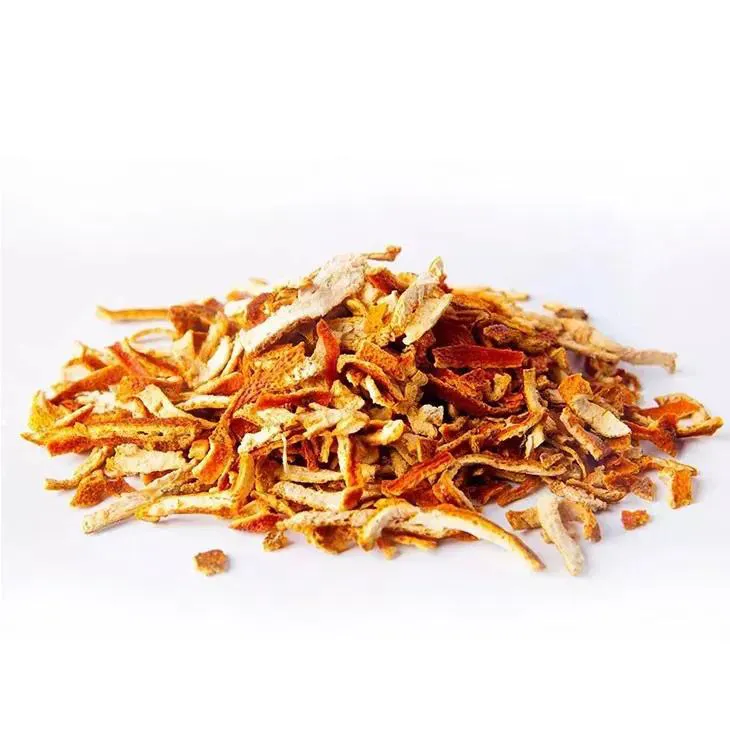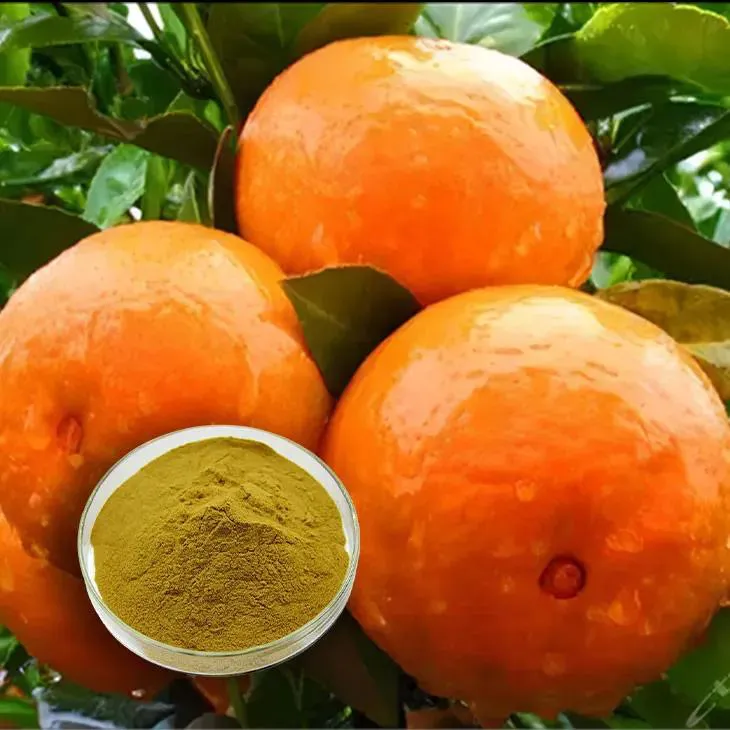- 0086-571-85302990
- sales@greenskybio.com
What are citrus bioflavonoids and why use them on the skin?
2024-11-12

1. Introduction to Citrus bioflavonoids
Citrus bioflavonoids are a diverse group of compounds that are naturally present in fruits belonging to the citrus family. These fruits include oranges, lemons, grapefruits, and limes. Citrus bioflavonoids are not just a single type of molecule but rather a complex mixture of various substances that have different chemical structures and properties. They are often found in the peel, pulp, and membranes of citrus fruits.

2. Chemical Structure and Types of Citrus Bioflavonoids
2.1 Flavonoids Family
Citrus bioflavonoids belong to the larger family of flavonoids. Flavonoids are polyphenolic compounds that are widely distributed in plants. They are known for their antioxidant properties. The main types of citrus bioflavonoids include flavones, flavonols, and flavanones.- Flavones: These are characterized by a specific chemical structure. Some common flavones in citrus fruits are luteolin. Flavones have been shown to have various biological activities, including anti - inflammatory effects.
- Flavonols: Quercetin is a well - known flavonol found in citrus fruits. Flavonols are also strong antioxidants and are involved in many physiological processes in the body.
- Flavanones: Hesperidin and naringenin are important flavanones in citrus. They are responsible for some of the unique properties of citrus fruits, such as their taste and aroma.

3. Anti - aging Effects on the Skin
3.1 Free Radical Neutralization
One of the most significant benefits of citrus bioflavonoids for the skin is their antioxidant power. Our skin is constantly exposed to environmental factors such as UV radiation, pollution, and toxins. These factors can generate free radicals, which are highly reactive molecules that can damage skin cells. Citrus bioflavonoids can neutralize these free radicals, preventing them from causing oxidative stress to the skin. Oxidative stress is a major contributor to the aging process of the skin, as it can lead to the breakdown of collagen and elastin fibers. By neutralizing free radicals, citrus bioflavonoids help to slow down the aging process and keep the skin looking younger.3.2 Reducing Age Spots and Hyperpigmentation
In addition to preventing oxidative damage, citrus bioflavonoids can also help in lightening age spots and hyperpigmentation. Age spots are areas of darkened skin that are often caused by sun exposure and the accumulation of melanin. Hyperpigmentation can also occur due to hormonal changes, inflammation, or skin damage. Citrus bioflavonoids can interfere with the production of melanin, the pigment responsible for skin color. By reducing melanin production, they can gradually lighten age spots and even out skin tone.
4. Vasoprotective Effects on the Skin
4.1 Improving Blood Circulation
Citrus bioflavonoids have vasoprotective effects, which means they can benefit the blood vessels in the skin. By acting on the blood vessels, they can improve blood circulation. Good blood circulation is essential for healthy skin as it brings oxygen and nutrients to the skin cells. When the skin cells receive an adequate supply of oxygen and nutrients, they can function properly and maintain a healthy appearance. Improved blood circulation can also give the skin a natural glow, making it look more vibrant and alive.4.2 Reducing Inflammation in Blood Vessels
Inflammation in blood vessels can be caused by various factors such as injury, infection, or underlying health conditions. Citrus bioflavonoids can help to reduce this inflammation. By reducing inflammation in the blood vessels, they can prevent damage to the blood vessel walls and ensure normal blood flow. This is important for maintaining the overall health of the skin and preventing skin problems related to poor blood circulation.5. Moisturizing Effects on the Skin
5.1 Role of Flavones and Flavonols
As mentioned earlier, citrus bioflavonoids are rich in flavones and flavonols, which are great for moisturizing the skin. These compounds have the ability to penetrate the different layers of the skin. Once they enter the skin, they can attract and retain water molecules, thereby increasing the skin's moisture content. This is important because hydrated skin looks smoother, softer, and more supple. Dry skin can lead to problems such as flakiness, itchiness, and premature wrinkling. By keeping the skin moisturized, citrus bioflavonoids can help to prevent these problems and maintain the skin's integrity.5.2 Long - term Skin Hydration
Unlike some synthetic moisturizers that may provide only temporary hydration, citrus bioflavonoids can offer long - term skin hydration. They work at a cellular level to improve the skin's natural ability to hold water. This is because they interact with the skin cells and help to regulate the skin's water - holding mechanisms. Over time, regular use of products containing citrus bioflavonoids can lead to a significant improvement in the skin's hydration status, resulting in a more youthful and healthy - looking complexion.6. How to Incorporate Citrus Bioflavonoids into Skin Care
6.1 Citrus - based Skincare Products
There are many skincare products on the market that contain citrus bioflavonoids. These include creams, lotions, serums, and masks. When choosing a citrus - based skincare product, it is important to look for products that have a high concentration of bioflavonoids. You should also check the ingredients list to ensure that the product does not contain any ingredients that you may be allergic to. Some popular citrus - based skincare brands are known for their use of natural citrus extracts and bioflavonoids.6.2 Homemade Citrus Skin Treatments
You can also make your own citrus skin treatments at home. For example, you can make a citrus peel mask by grinding dried citrus peels into a fine powder and mixing it with a suitable carrier such as honey or yogurt. This mask can be applied to the face for 15 - 20 minutes and then rinsed off. Another option is to make a citrus juice toner by squeezing fresh citrus juice and diluting it with water. This toner can be used to cleanse and tone the skin. However, it is important to note that fresh citrus juice can be irritating to some people's skin, so it is advisable to do a patch test before using it on the entire face.7. Precautions and Considerations
7.1 Skin Sensitivity
While citrus bioflavonoids can offer many benefits to the skin, some people may be sensitive to them. Skin sensitivity can manifest as redness, itching, or irritation. If you have sensitive skin, it is advisable to start with a small amount of a product containing citrus bioflavonoids and gradually increase the amount if there are no adverse reactions. You should also avoid using products with high concentrations of citrus bioflavonoids if you have a history of skin allergies or sensitivities.7.2 Sun Exposure
Some citrus bioflavonoids can make the skin more sensitive to sunlight. This means that if you are using products containing citrus bioflavonoids, you should be extra careful about sun exposure. It is recommended to use a broad - spectrum sunscreen with a high SPF when using citrus - based skincare products. This will protect your skin from the harmful effects of UV radiation and prevent sunburn and skin damage.8. Conclusion
Citrus bioflavonoids are a valuable addition to skin care. Their antioxidant, vasoprotective, and moisturizing properties make them beneficial for maintaining healthy, youthful - looking skin. Whether through commercial skincare products or homemade treatments, incorporating citrus bioflavonoids into your skin care routine can be a great way to improve the appearance and health of your skin. However, it is important to be aware of potential sensitivities and take appropriate precautions, especially when it comes to sun exposure.
FAQ:
What are the main components of citrus bioflavonoids?
Citrus bioflavonoids are complex compounds, mainly including flavones and flavonols which are important for their various functions on the skin.
How do citrus bioflavonoids slow down skin aging?
Citrus bioflavonoids slow down skin aging through their antioxidant power. They can neutralize free radicals on the skin surface, which is one of the main causes of the aging process.
Can citrus bioflavonoids really improve skin pigmentation problems?
Yes, they can. By neutralizing free radicals, citrus bioflavonoids can help in lightening age spots and hyperpigmentation.
How do citrus bioflavonoids improve skin circulation?
Citrus bioflavonoids have vasoprotective effects, which means they can directly act on the blood vessels in the skin to improve blood circulation, giving the skin a healthy glow.
How effective are citrus bioflavonoids in moisturizing the skin?
Citrus bioflavonoids are rich in flavones and flavonols which are good at moisturizing. They can penetrate the skin layers and keep the skin hydrated, making the skin look smoother and more supple.
Related literature
- Title: The Role of Citrus Bioflavonoids in Skin Health and Cosmetics"
- Title: "Citrus Bioflavonoids: Antioxidant Properties and Skin Applications"
- ▶ Hesperidin
- ▶ citrus bioflavonoids
- ▶ plant extract
- ▶ lycopene
- ▶ Diosmin
- ▶ Grape seed extract
- ▶ Sea buckthorn Juice Powder
- ▶ Beetroot powder
- ▶ Hops Extract
- ▶ Artichoke Extract
- ▶ Reishi mushroom extract
- ▶ Astaxanthin
- ▶ Green Tea Extract
- ▶ Curcumin Extract
- ▶ Horse Chestnut Extract
- ▶ Other Problems
- ▶ Boswellia Serrata Extract
- ▶ Resveratrol Extract
- ▶ Marigold Extract
- ▶ Grape Leaf Extract
- ▶ blog3
- ▶ blog4
- ▶ blog5
-
Organic Tongkat Ali extract powder factory.
2024-11-12
-
How to make powder with ashwagandha extract.
2024-11-12
-
Rosehip extract manufacturers from China.
2024-11-12
-
The best cat's claw extract in nature.
2024-11-12
-
Chinese Dandelion Leaf Extract Suppliers.
2024-11-12
-
Hawthorn powder
2024-11-12
-
Kelp Extract Powder
2024-11-12
-
Lavender Extract
2024-11-12
-
American Ginseng Root Extract
2024-11-12
-
Agaricus Blazei Extract
2024-11-12
-
Baicalin
2024-11-12
-
Grape Seed Extract
2024-11-12
-
Black Garlic Extract
2024-11-12
-
Artichoke Leaf Extract
2024-11-12
-
Nutmeg Extract
2024-11-12





















